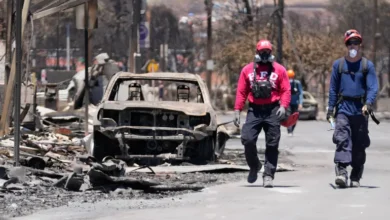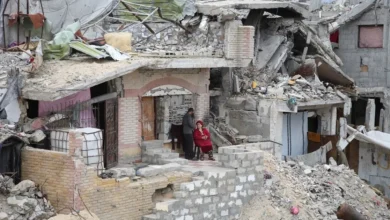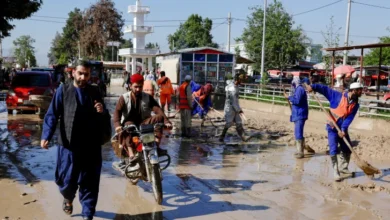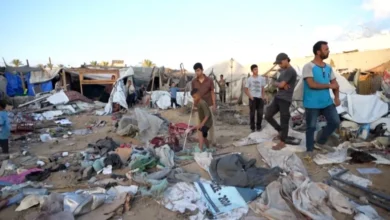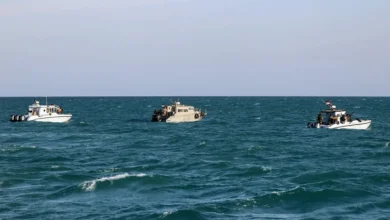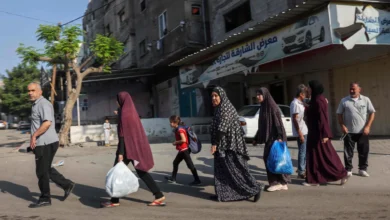Countries race to evacuate citizens from Sudan
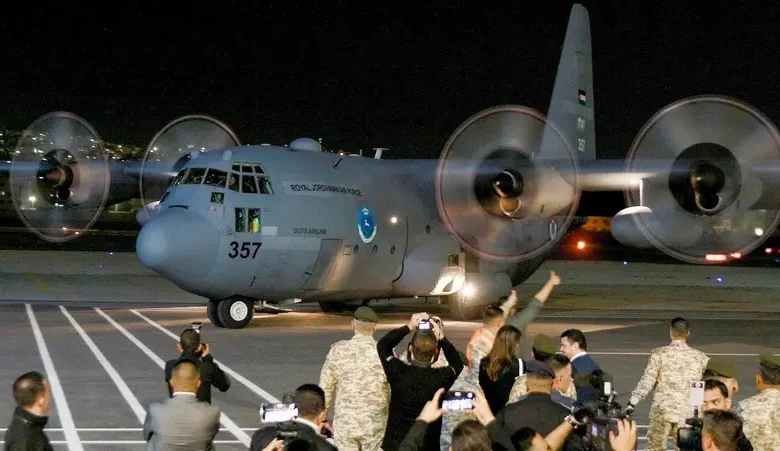
European nations, China and others from around the world raced to extract thousands of their citizens from Khartoum on Monday during an apparent lull in fierce fighting between the army and a paramilitary force.
The sudden eruption of violence between the military and the well-armed Rapid Support Forces (RSF) paramilitary group on April 15 has triggered a humanitarian crisis and killed 420 people.
Along with millions of Sudanese without access to basic services and trapped in their homes, thousands of foreign diplomats, aid workers, students and their families found themselves stuck in a war zone last week.
Fighter jets have bombed the capital, the main airport has been at the center of fighting and artillery barrages have made movement unsafe in and out of one of Africa’s largest cities. Diplomats have been targeted in attacks, and at least five aid workers killed.
Despite sustained pressure from countries concerned by the conflict’s wider repercussions as well as the safety of their nationals, the two sides have not abided by a temporary truce.
However, fighting calmed enough over the weekend for the United States to get embassy staff out by military helicopter, triggering a rush of evacuations by other countries.
At least two convoys involved in the evacuations came under attack, including one carrying Qatari embassy staff, and another carrying French citizens, one of whom was injured.
France and Germany on Monday said they had evacuated around 700 people, without giving a breakdown of their nationalities. A German air force plane carrying evacuees landed in Berlin early on Monday.
Jordan had previously said four planes carrying 343 people, including Jordanian nationals and residents of Palestine, Iraq, Syria and Germany, had departed Sudan.
Several countries sent military planes from Djibouti to fly people out from the capital, while other operations took people by convoy to Port Sudan on the Red Sea, which is about 800 kilometers (500 miles) by road from Khartoum. From there some have boarded ships to Saudi Arabia.
Indonesia said so far more than 500 of its citizens had been evacuated to the port, and were awaiting transport to Jeddah, across the Red Sea.
China, Denmark, Lebanon, the Netherlands, Switzerland and Sweden also said they had got nationals out, while Japan said it was preparing to send an evacuation team from Djibouti.
More than 1,000 European Union citizens were evacuated from Sudan over the weekend, the bloc’s foreign policy chief Josep Borrell told journalists on Monday.
“It has been a complex operation and it has been a successful operation,” Borrell said.
Borrell noted that 21 diplomats from the EU’s mission in Khartoum were taken out and the EU ambassador had moved outside the capital to elsewhere in Sudan.
“I want to thank France especially for taking our people out,” he said.
“And I want to thank the combined efforts of many countries that took their nationals but also all nationals that they could pick.”
An EU official on Friday told AFP that there were an estimated 1,500 citizens from the bloc in Khartoum.
Borrell said on Sunday that he had spoken to rival commanders Abdel Fattah al-Burhan and Mohamed Hamdan Daglo to call for an “immediate ceasefire.”
A convoy of about 65 vehicles carrying some 700 international United Nations, NGO and embassy staff and their dependents drove from Khartoum to Port Sudan on Sunday as part of the evacuations, a diplomatic source said.
The evacuation of international staff from Darfur, the western region where fighting has also escalated, is also under way, with some heading to Chad and others to South Sudan, the source said.
The fighting in Sudan has closed most hospitals and curtailed water and electricity supplies. The killing of aid workers, including three from the World Food Programme, has led the UN agency to pause its operations in the country, which relies on food aid for about a quarter of its people.
The army and RSF jointly staged a coup in 2021 but fell out during negotiations to integrate the two groups and form a civilian government four years after Omar al-Bashir was toppled.
Their rivalry has raised the risk of a wider conflict that could draw in outside powers.
Beyond the capital, people are reported to have fled clashes in several regions including Darfur’s three states, Blue Nile State on the border with Ethiopia and South Sudan, and North Kordofan State southwest of Khartoum, according to a UN update on Monday.

